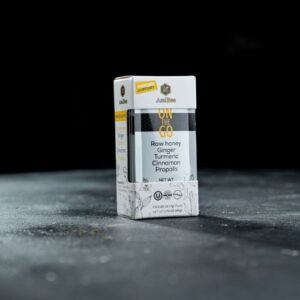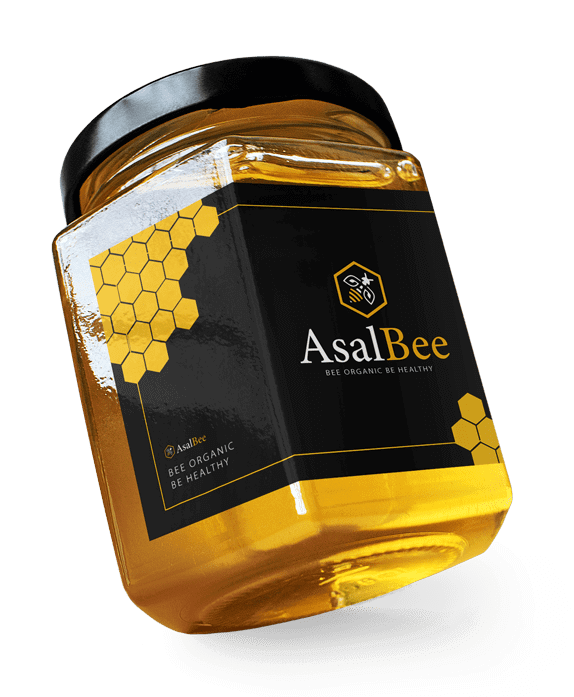- Home
- FAQs
FAQs
Popular Questions
Frequently Asked Questions
Do you have any questions bothering your mind? Remember that you can ask us anything, anytime and anywhere. But before then, why don’t you go through our compiled list of the most frequently asked questions that we have attended to in the past?

The Sidr tree, also known as the Jujube tree or Christ's Thorn, is a small, deciduous tree native to the Middle East, particularly in Yemen and Saudi Arabia. It is a slow-growing tree that can reach up to 10-12 meters in height, with a spreading crown and a trunk that can be up to 50 cm in diameter.
The Sidr tree is known for its small, edible fruit, which is called the Jujube fruit or the Red Date. The fruit is oval-shaped, with a wrinkled skin that can range in color from yellow-green to reddish-brown, and has a sweet, apple-like flavor. The tree also produces fragrant flowers that are used in perfumes and aromatherapy.
The Sidr tree is considered to be a sacred tree in many cultures, and is mentioned in various religious texts, including the Quran. It is also highly valued for its wood, which is used in furniture-making and for carving decorative objects.
In addition to its cultural and religious significance, the Sidr tree is also known for its medicinal properties. The leaves, bark, and fruit of the tree have been used in traditional medicine to treat various ailments, including coughs, digestive issues, and skin problems. The honey produced by bees that feed on the nectar of Sidr flowers is also highly valued for its potential health benefits.
Royal Honey Sidr Doani is a type of honey that is produced by bees that feed exclusively on the nectar of Sidr trees (also known as Jujube or Ber trees), which are found in certain regions of Yemen. This type of honey is highly valued for its unique taste and medicinal properties.
Sidr honey is known to have high levels of antioxidants, antibacterial and anti-inflammatory properties, and is also believed to have potential health benefits such as promoting wound healing, improving digestion, boosting the immune system, and even potentially treating certain types of cancer.
Royal honey, on the other hand, is a type of honey that is produced by bees that are fed a special diet of royal jelly, which is a secretion produced by worker bees and fed to larvae in order to develop them into queen bees. Royal honey is often marketed as a type of health supplement or aphrodisiac due to its claimed benefits for energy, vitality, and sexual function.
Therefore, Royal Honey Sidr Doani is a type of honey that combines the unique properties of both Sidr honey and royal jelly, and is marketed as a health supplement with potential benefits for overall health and well-being.
Sidr honey is a type of honey that is produced by bees that feed exclusively on the nectar of Sidr trees (also known as Jujube or Ber trees), which are found in certain regions of Yemen. Sidr honey is highly valued for its unique taste and medicinal properties.
Sidr honey has a distinctive aroma and flavor that is often described as floral, fruity, and slightly sour. It is also thicker and darker in color than other types of honey. This is due to the high mineral content of the soil where the Sidr trees grow, which is absorbed by the tree's roots and transferred to the nectar.
Sidr honey is rich in antioxidants, vitamins, and minerals, and is also believed to have potential health benefits such as promoting wound healing, improving digestion, boosting the immune system, and even potentially treating certain types of cancer. Sidr honey is also known for its antibacterial and anti-inflammatory properties.
Due to its high quality and potential health benefits, Sidr honey is often more expensive than other types of honey. It is typically sold in small jars or bottles, and is considered a luxury food item in many parts of the world.
Sidr honey is highly valued for its unique taste and medicinal properties. Here are some reasons why you might choose Sidr honey:
- Unique flavor: Sidr honey has a distinctive aroma and flavor that is often described as floral, fruity, and slightly sour. It is thicker and darker in color than other types of honey, which gives it a richer and more complex flavor profile.
- High quality: Sidr honey is produced by bees that feed exclusively on the nectar of Sidr trees, which are found in certain regions of Yemen. The honey is carefully harvested and processed to preserve its natural properties and flavor.
- Potential health benefits: Sidr honey is rich in antioxidants, vitamins, and minerals, and is also believed to have potential health benefits such as promoting wound healing, improving digestion, boosting the immune system, and even potentially treating certain types of cancer. Sidr honey is also known for its antibacterial and anti-inflammatory properties.
- Cultural significance: Sidr honey has a long history of cultural significance in the Middle East, and is considered to be a luxury food item in many parts of the world. It is often used in religious ceremonies and celebrations, and is also given as a gift to show respect or hospitality.
Overall, Sidr honey is a good choice for those who are looking for a high-quality honey product with a unique flavor and potential health benefits. However, due to its high cost and limited availability, Sidr honey may not be accessible to everyone.
Yemeni honey is highly valued for its unique taste, quality, and potential health benefits. Here are some reasons why you might choose Yemeni honey:
- Unique taste and flavor: Yemeni honey has a distinctive taste and flavor that is highly valued by honey connoisseurs around the world. The honey is produced from a variety of flowers and plants that are unique to Yemen, which gives it a unique flavor profile.
- High quality: Yemeni honey is produced by skilled beekeepers who follow traditional and sustainable beekeeping practices. The honey is carefully harvested and processed to preserve its natural properties and flavor.
- Medicinal properties: Yemeni honey is known for its potential health benefits, which include promoting wound healing, soothing sore throats, and supporting digestive health. Yemeni honey is also rich in antioxidants, vitamins, and minerals.
- Cultural significance: Yemeni honey has a long history of cultural significance in Yemen, and is often used in religious ceremonies and celebrations. Yemeni honey is also given as a gift to show respect or hospitality.
- Rare and limited availability: Yemeni honey is a rare and limited commodity due to the difficult terrain and political instability in Yemen. This rarity gives it a premium value and makes it highly sought after by honey connoisseurs.
Overall, the unique taste and flavor, high quality, potential health benefits, cultural significance, and limited availability of Yemeni honey give it a competitive advantage over other types of honey.
- Rich flavor: Yemeni honey is known for its rich and distinctive flavor, which is often described as floral, fruity, and spicy. This is due to the variety of flowers and plants that the bees feed on in Yemen, which gives the honey its unique flavor profile.
- High quality: Yemeni honey is produced by skilled beekeepers who follow traditional and sustainable beekeeping practices. The honey is carefully harvested and processed to preserve its natural properties and flavor.
- Medicinal properties: Yemeni honey is known for its potential health benefits, which include promoting wound healing, soothing sore throats, and supporting digestive health. Yemeni honey is also rich in antioxidants, vitamins, and minerals.
- Cultural significance: Honey has a long history of cultural significance in Yemen, and is often used in religious ceremonies and celebrations. Yemeni honey is also given as a gift to show respect or hospitality.
- Supporting local communities: By choosing Yemeni honey, you are supporting local beekeepers and their communities. This helps to promote sustainable beekeeping practices and protect bee populations, which are essential for agriculture and biodiversity.
Overall, Yemeni honey is a good choice for those who are looking for a high-quality honey product with a unique flavor and potential health benefits. However, due to its limited availability and high cost, Yemeni honey may not be accessible to everyone.
Raw honey and processed honey have different characteristics and potential benefits. Let's compare the two:
Raw Honey:
- Unprocessed: Raw honey is in its purest form, as it is extracted directly from the honeycomb and lightly strained to remove debris. It does not undergo pasteurization or any other processing.
- Nutrient-rich: Raw honey retains its natural vitamins, minerals, enzymes, and antioxidants, making it more nutritious than processed honey.
- Antibacterial properties: The natural enzymes and antibacterial compounds in raw honey remain intact, which can be beneficial for wound healing and soothing a sore throat.
- Unique flavor and aroma: Raw honey retains its natural flavors and aromas, offering a more distinct taste compared to processed honey.
- Crystallization: Raw honey is more likely to crystallize over time due to its unprocessed nature, but this does not affect its quality or taste.
- Unfiltered and unpasteurized: Raw honey is not filtered or pasteurized, which helps retain its natural vitamins, minerals, enzymes, and antioxidants. This contributes to the potential health benefits of honey.
- Contains pollen: Raw honey contains bee pollen, which has been linked to potential health benefits such as improved immunity and allergy relief.
- Texture: Raw honey often has a thicker, creamier texture and can crystallize more quickly than processed honey.
- Rich flavor: Raw honey retains its natural flavors and aromatic compounds, which can vary depending on the flowers the bees visited. This gives it a unique, rich taste.
- Health benefits: The presence of antioxidants, antibacterial properties, and other beneficial compounds make raw honey a popular choice for promoting overall health and wellness.
Processed Honey:
- Pasteurized: Processed honey undergoes pasteurization, a heating process that kills yeast and prevents fermentation, extending its shelf life.
- Nutrient loss: Pasteurization and other processing methods can cause the loss of some nutrients, enzymes, and antioxidants found in raw honey.
- Smoother texture: Processed honey often has a smoother, more uniform texture compared to raw honey, which may be preferred for some culinary uses.
- Less likely to crystallize: Processed honey is less likely to crystallize due to its pasteurization,
- Filtered and pasteurized: Processed honey undergoes filtration and pasteurization, which can remove some of its beneficial nutrients and enzymes, reducing its potential health benefits.
- Pollen-free: Processed honey is often free of pollen, which can be an advantage for people with pollen allergies.
- Texture: Processed honey is generally smoother and more liquid, making it easier to pour and dissolve.
- Consistent flavor: Processed honey has a more consistent flavor and color compared to raw honey, which may be preferred by some people.
- Longer shelf life: The pasteurization process in processed honey helps prevent crystallization, giving it a longer shelf life.
In conclusion, raw honey is generally considered better due to its higher nutritional content, and unique flavors.
Manuka honey is a type of honey that is produced in New Zealand and Australia by bees that feed on the nectar of the Manuka tree (Leptospermum scoparium). Manuka honey is highly valued for its unique flavor and potential health benefits.
Manuka honey is known for its high levels of antibacterial and anti-inflammatory properties, which are attributed to its high concentration of methylglyoxal (MGO). MGO is a natural compound found in Manuka honey that has been shown to have potent antibacterial properties.
Manuka honey is graded based on its MGO concentration, with higher levels of MGO indicating greater antibacterial activity. The highest quality Manuka honey can have MGO levels of up to 1000 mg/kg or more.
Manuka honey is often used for its potential health benefits, which include promoting wound healing, soothing sore throats, and supporting digestive health. It is also believed to have potential benefits for the immune system and may even help to prevent certain types of cancer.
Due to its high quality and potential health benefits, Manuka honey is often more expensive than other types of honey. It is typically sold in small jars or bottles and is considered a luxury food item in many parts of the world.
There are different types of Manuka honey that are classified based on their Unique Manuka Factor (UMF) rating. The UMF rating system is used to measure the potency of Manuka honey and its antibacterial activity. Here are the different types of Manuka honey based on their UMF rating:
- UMF 5+: This type of Manuka honey has a low level of antibacterial activity and is generally used for everyday consumption or as a natural sweetener.
- UMF 10+: This type of Manuka honey has a moderate level of antibacterial activity and is often used for therapeutic purposes, such as wound healing or immune support.
- UMF 15+: This type of Manuka honey has a high level of antibacterial activity and is often used for more serious health conditions, such as gastrointestinal issues or skin infections.
- UMF 20+: This type of Manuka honey has an extremely high level of antibacterial activity and is considered the most potent form of Manuka honey. It is often used for severe health conditions, such as MRSA infections or chronic wounds.
In addition to the UMF rating system, there is also a similar rating system called the MGO (methylglyoxal) rating system, which measures the concentration of MGO in Manuka honey. Higher MGO levels are associated with greater antibacterial activity and potential health benefits.
Overall, the different types of Manuka honey are classified based on their potency and antibacterial activity. Higher UMF or MGO ratings indicate greater potency and potential health benefits.
There are many types of raw organic honey available, each with their own unique flavor and potential health benefits. Here are some options for the best raw organic honey:
- Sidr honey: Sidr honey is a type of raw organic honey that is produced in Yemen by bees that feed exclusively on the nectar of Sidr trees. Sidr honey is highly prized for its distinctive aroma and flavor, as well as its potential health benefits. It is a rare and limited commodity due to the difficult terrain and political instability in Yemen.
- Sumar honey: Sumar honey is another type of raw organic honey that is produced in Yemen. It is made from the nectar of various flowers and plants that are found in Yemen, and is known for its rich and complex flavor profile. Sumar honey is often used for its potential health benefits, which include promoting wound healing and supporting digestive health.
- Sidr-Sumr blend: Some Yemeni honey producers offer a blend of Sidr and Sumar honey, which combines the unique flavor and potential health benefits of both types of honey.
- Manuka honey: Manuka honey is a type of raw organic honey that is produced in New Zealand and is highly valued for its unique flavor and potential health benefits. Manuka honey is known for its high levels of antibacterial and anti-inflammatory properties, which are attributed to its high concentration of methylglyoxal (MGO).
- Raw organic wildflower honey: Raw organic wildflower honey is produced by bees that feed on a variety of wildflowers, and can have a unique and complex flavor profile. It is a raw and organic honey that is rich in antioxidants and potential health benefits
When choosing a Yemeni raw organic honey, it is important to look for a high-quality product that has not been processed or heated, and to ensure that it is certified organic to avoid exposure to harmful chemicals and pesticides. Due to the limited availability and high demand for Yemeni honey, it is often more expensive than other types of honey.
When choosing a raw organic honey, it is important to look for a high-quality product that has not been processed or heated, and to ensure that it is certified organic to avoid exposure to harmful chemicals and pesticides.
Honey is a natural sweetener produced by bees from the nectar of flowers. It is a popular alternative to refined sugar and artificial sweeteners, as it offers numerous health benefits and a unique flavor. Here are some key points to consider when using honey as a natural sweetener:
- Rich in antioxidants: Honey is rich in antioxidants, which help protect the body from cell damage caused by free radicals. These antioxidants can help reduce the risk of chronic diseases, such as heart disease and cancer.
- Antibacterial properties: Honey has natural antibacterial properties, making it a popular remedy for soothing sore throats and treating minor wounds and burns.
- Nutritional benefits: Honey contains trace amounts of vitamins and minerals, including vitamin C, calcium, and iron. Although the amounts are small, they contribute to the overall nutritional benefits of honey compared to regular sugar.
- Lower glycemic index: Honey has a lower glycemic index (GI) than refined sugar, meaning it causes a slower and smaller increase in blood sugar levels. This makes it a healthier option for people watching their blood sugar or trying to manage their weight.
- Unique flavor: Honey has a distinct taste that can add depth and sweetness to various dishes, from baked goods to salad dressings and marinades.
- Substitution in recipes: When using honey as a sweetener in recipes, it is generally recommended to use about ¾ the amount of honey as the sugar called for in the recipe.
Royal honey is a type of honey that is produced from the royal jelly that is fed to queen bees. Royal jelly is a nutrient-rich secretion that is produced by worker bees and fed to the queen bee in order to stimulate her growth and development.
Royal honey is often marketed as a natural supplement that can provide a range of potential health benefits. It is believed to be a rich source of antioxidants, vitamins, minerals, and amino acids, and may help to boost the immune system, improve cognitive function, and support overall health and vitality.
Royal honey is often consumed as a dietary supplement or added to foods and beverages as a natural sweetener. However, it is important to note that more research is needed to fully understand the potential health benefits of royal honey, and individuals should consult with a healthcare professional before consuming royal honey or any other supplements.
Additionally, some people may be allergic to bee products and should avoid consuming royal honey.
All honey product pages should have this disclaimer:
disclaimer for honey medical benefits:
The information provided about the potential health benefits of honey is not intended to diagnose, treat, cure, or prevent any disease or health condition, and should not be used as a substitute for medical advice or treatment. It is important to seek advice from a healthcare professional before using honey or any other natural remedies, particularly if you have any underlying health conditions or are taking prescription medication.
Additionally, the potential health benefits of honey may vary depending on the type of honey and its quality, as well as individual factors such as age, health status, and dietary habits. While honey may offer some potential health benefits, it should not be relied on as a sole treatment for any health condition.
Honey has been traditionally used for its potential medicinal properties, and has been studied for its potential benefits in a variety of health conditions. Here are some of the most common medical conditions that honey may be beneficial for:
- Cough and sore throat: Honey has been shown to have potential benefits for cough relief and soothing sore throats. It can help to coat the throat and reduce irritation, and may have natural antibacterial and anti-inflammatory properties that can support respiratory health.
- Wound healing: Honey has been used for centuries as a natural remedy for wound healing, and has been shown to have potential benefits for promoting skin regeneration, reducing inflammation, and preventing infection.
- Digestive health: Honey may have potential benefits for digestive health, including supporting the growth of beneficial gut bacteria and promoting digestive regularity.
- Allergies: Some studies suggest that consuming honey may help to alleviate allergy symptoms by desensitizing the immune system to pollen and other allergens.
- Skin health: Honey may have potential benefits for skin health, including reducing inflammation and promoting skin regeneration.
It is important to note that more research is needed to fully understand the potential health benefits of honey, and that honey should not be relied on as a sole treatment for any medical condition. It is important to seek medical advice from a healthcare professional for any health concerns.
While honey has been traditionally used for its potential medicinal properties, it is important to note that honey should not be relied on as a sole treatment for any illnesses. Honey may offer some potential health benefits and can be used as a natural remedy to complement conventional medical treatments, but it should not be used as a substitute for medical advice or treatment.
Honey has been shown to have potential benefits for wound healing, cough relief, and soothing sore throats. Honey may also have potential benefits for digestive health and may even have antibacterial and anti-inflammatory properties that can support overall health.
However, it is important to choose high-quality honey and to consume it in moderation, as honey is still a source of calories and sugar. Some people may also be allergic to bee products and should avoid consuming honey altogether.
In summary, while honey may offer potential health benefits and be used as a natural remedy, it should not be relied on as a cure for any illnesses. It is important to seek medical advice from a healthcare professional for any health concerns.
No, honey should not be used as a substitute for prescribed medication or medical treatment. While honey has been traditionally used for its potential medicinal properties, it is not a substitute for medical advice or treatment.
Certain health conditions require medical attention and prescribed medication, and it is important to follow the advice of a healthcare professional. Honey may offer some potential health benefits and can be used as a natural remedy to complement conventional medical treatments, but it should not be used as a sole treatment for any health condition.
It is important to consult with a healthcare professional before using honey or any other natural remedies, particularly if you have any underlying health conditions or are taking prescription medication.
Diabetics should be cautious when consuming honey, as it is a natural sweetener that can raise blood sugar levels. However, there are some types of honey that may be more suitable for diabetics. Here are some options:
- Manuka honey: Manuka honey is a type of honey that is produced in New Zealand and has been shown to have a lower glycemic index than other types of honey. This means it may have less of an impact on blood sugar levels.
- Buckwheat honey: Buckwheat honey is another type of honey that has a lower glycemic index and may be a better choice for diabetics. It is also rich in antioxidants and has potential health benefits.
- Raw honey: Raw honey is honey that has not been heated or processed, and may retain more of its natural nutrients and enzymes that can offer potential health benefits. However, diabetics should consume raw honey in moderation to avoid spikes in blood sugar levels.
It is important for diabetics to consult with a healthcare professional before consuming honey or any other sweeteners, and to monitor their blood sugar levels carefully. In general, diabetics should consume honey in moderation and as part of a balanced diet.
While honey is generally considered a healthier alternative to refined sugar, it is still a source of calories and sugar and should be consumed in moderation as part of a balanced diet. There are some types of honey that may be more beneficial for individuals with high cholesterol, including:
- Sidr honey: Sidr honey is a type of honey that is produced by bees that feed exclusively on the nectar of Sidr trees, which are known for their potential health benefits including reducing cholesterol levels.
- Wildflower honey: Wildflower honey is made from the nectar of various wildflowers, which can provide a range of health benefits. Some studies suggest that wildflower honey may help to reduce cholesterol levels and improve cardiovascular health.
- Clover honey: Clover honey is made from the nectar of clover flowers and is a rich source of antioxidants, which can help to reduce inflammation and improve cardiovascular health.
It is important to note that while honey may offer potential health benefits, it should not be relied on as a sole treatment for high cholesterol. Individuals with high cholesterol should also follow a healthy diet and lifestyle, and consult with a healthcare professional to develop a comprehensive treatment plan.
While honey has been traditionally used as a natural aphrodisiac, there is limited scientific evidence to support its effectiveness in this area. However, honey may offer some potential health benefits that could indirectly support sexual health and function.
Here are some ways that honey may be beneficial for sexual health:
- Boosting energy and vitality: Honey is a natural source of carbohydrates and sugar, which can provide a quick source of energy and may help to boost vitality and libido.
- Supporting immune system function: Honey is rich in antioxidants and potential immune-boosting properties, which can support overall health and may indirectly promote sexual health.
- Promoting wound healing: Honey has been used for centuries as a natural remedy for wound healing, and may be beneficial for treating genital infections or irritation that could impact sexual function.
- Reducing stress: Chronic stress can negatively impact sexual health and function. Honey has natural anti-inflammatory and relaxing properties that may help to reduce stress and promote relaxation.
However, it is important to note that more research is needed to fully understand the potential benefits of honey for sexual health, and that honey should not be relied on as a sole treatment for any sexual health issues. It is important to seek medical advice from a healthcare professional for any sexual health concerns.
Raw honey is generally more expensive than processed honey because it is not heated, filtered, or pasteurized like commercial honey. This means that raw honey retains all of its natural enzymes, antioxidants, and nutrients that are often destroyed during the processing of commercial honey.
In addition, raw honey is often produced by small-scale beekeepers who use sustainable and ethical beekeeping practices, which can be more labor-intensive and costly than conventional beekeeping methods. Raw honey is also often sourced from specific types of flowers or trees, which can impact the flavor, color, and quality of the honey and may make it more valuable.
Furthermore, there is a limited supply of raw honey due to factors such as climate, geography, and availability of nectar sources, which can increase the price of raw honey. Some types of raw honey, such as Yemeni most expensive types of honey in the world are highly prized for their potential health benefits and are often more expensive than other types of honey.
Overall, the price of raw honey reflects its high quality, purity, and potential health benefits. While it may be more expensive than processed honey, many people believe that the potential health benefits and superior flavor of raw honey make it worth the extra cost.
Yemeni honey is considered to be one of the rarest and most expensive types of honey in the world, for several reasons:
- Limited production: Yemeni honey is produced in limited quantities due to the difficult terrain, political instability, and economic challenges in Yemen. Yemeni honey production has also been impacted by factors such as climate change, drought, and the destruction of bee habitats.
- Unique flavor and aroma: Yemeni honey is known for its distinctive flavor and aroma, which is attributed to the Sidr tree nectar that the bees feed on. The Sidr tree is only found in certain parts of Yemen, and the nectar flow is highly dependent on weather conditions and other environmental factors.
- High-quality and organic production: Yemeni honey is produced using traditional and organic beekeeping methods, which involve minimal interference with the bees and the use of sustainable and ethical practices. This high-quality and organic production process contributes to the premium price of Yemeni honey.
- Potential health benefits: Yemeni honey is believed to have potential health benefits due to its high levels of antioxidants, antibacterial properties, and other beneficial compounds. This has further increased the demand for Yemeni honey and contributed to its premium price.
Overall, the rarity, unique flavor, high-quality production methods, and potential health benefits of Yemeni honey make it a sought-after and expensive commodity in the global honey market.










